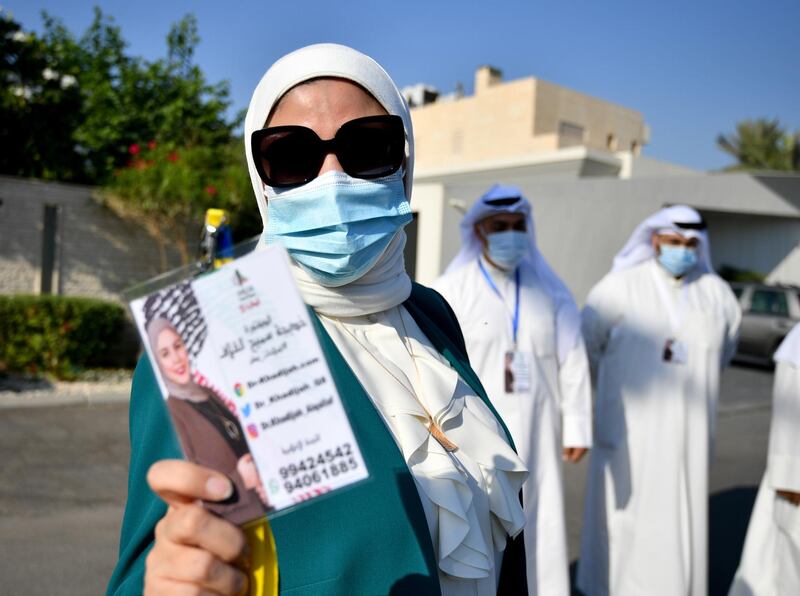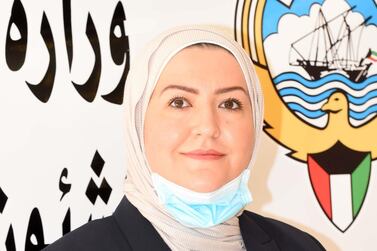Coronavirus fears are unlikely to affect the turnout in Kuwait's parliamentary elections, experts said.
Voters will choose from 326 candidates for 50 of the 65 parliamentary seats across five constituencies on December 5.
It is the first ballot to be held in the country without the participation of ruler Sheikh Sabah, who died in September.
His half-brother, Sheikh Nawaf, was sworn in as emir on September 29.
"While most, if not all, Kuwaitis have praised the late Sheikh Sabah, many are expecting more from Sheikh Nawaf, prompting people to name this period as the New Era," Nabeel Nowairah, an independent Gulf analyst told The National.
Kuwait's Parliament endorses Sheikh Meshal as Crown Prince

The public hopes that Sheikh Nawaf can make a difference to pressing issues in the country, including corruption, he said.
Turnout could be high because the public wants a strong parliament, Hamad Al Baloshi, assistant professor of political science at Kuwait University, told The National.
People might want to participate "because they want a change in the country, especially with the poor performance of the previous parliament", Mr Al Baloshi said.
Some political groups and politicians who have not taken part in elections since 2012 are doing so this time around.
Hassan Jowhar, a member of parliament and political scientist, as well as the opposition Progressive Movement are involved in this year's elections.
“Sheikh Nawaf has made good gestures by meeting with prominent opposition figures. All these could be interpreted as encouraging signs for more participation in the elections,” Mr Nowairah said.
Twenty-six of the candidates in this election are women. The last National Assembly, which concluded in September, had only one female member. In 2016, 15 women ran, but only Safa Al Hashem was victorious.
When the registration period ended, there was a total of 396 candidates, including a record 33 women. However, the number dropped after 54 candidates, two of whom were women, withdrew from the race.
Impact of coronavirus on the ballot
The pandemic has changed how candidates are campaigning, with many taking to social media to encourage people to vote.
Candidates posted videos and campaign materials on Twitter and other platforms.
Voters will be further encouraged to vote by the way the government is dealing with the pandemic.
“Many Kuwaitis think that the current government has proved to be efficient in dealing with the pandemic, especially that this is a worldwide problem,” Mr Nowairah said.
Kuwait has reported more than 143,000 coronavirus cases to date, including 886 deaths, by election day.
Parliament will allow people infected with coronavirus, as well as those abiding by quarantine regulations, to cast their vote on the day.
But as the government focused its energy on dealing with virus-related obstacles that may impede turnout, it neglected to register eight new residential areas in the five electoral districts.
Voter registration has increased slightly, with 567,694 people on the electoral roll compared with 483,000 in 2016.
But there has been a decrease in candidate registration from 2016, when 440 people stood for office.
On Saturday, 102 schools will open for people to cast their votes. Each school will have a clinic set up to check the health of all those entering.
Only people who registered to vote and are over the age of 21 can cast a ballot, according to the Kuwaiti election law.






